As the capital city and the national center for international exchanges, Beijing plays a vital role in serving China's diplomatic approach as a major country. Over the past five years, guided by Xi Jinping Thought on Socialism with Chinese Characteristics for a New Era and Xi Jinping Thought on Diplomacy, Beijing has been improving its capacity to provide services in accordance with China's diplomatic approach as a major country and Beijing's position as the center for international exchanges by providing supporting facilities, enriching service supply, and enhancing the environment for reception. New achievements have been made in strengthening the city's role as a center for international exchanges.
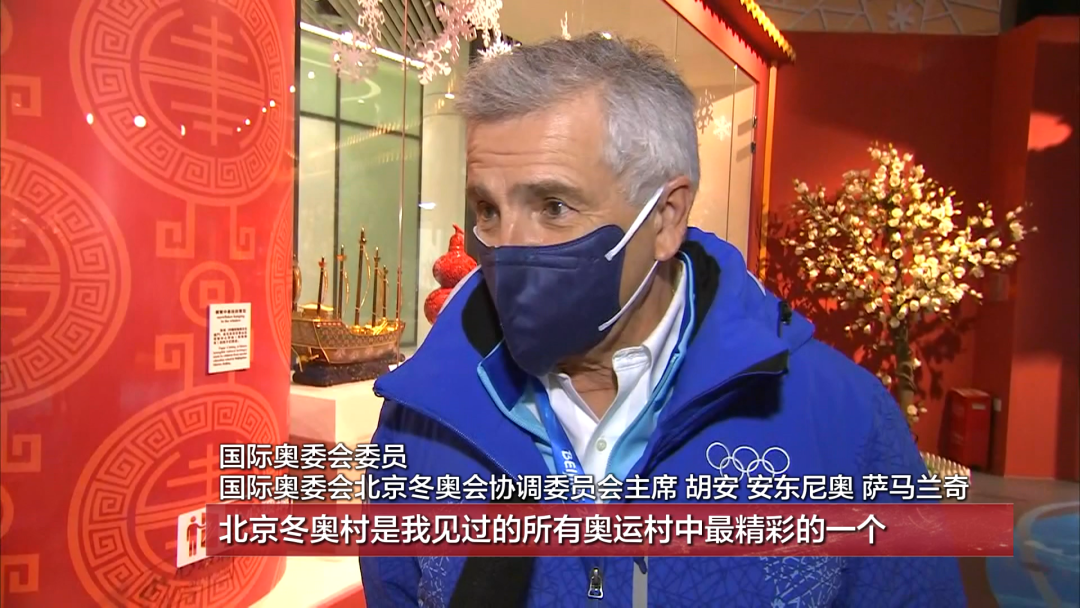
Juan Antonio Samaranch, Member of the International Olympic Committee (IOC) and Chairman of the IOC Coordination Commission for Beijing 2022
Juan Antonio Samaranch: The Olympic Village for Beijing 2022 has the most wonderful facilities.
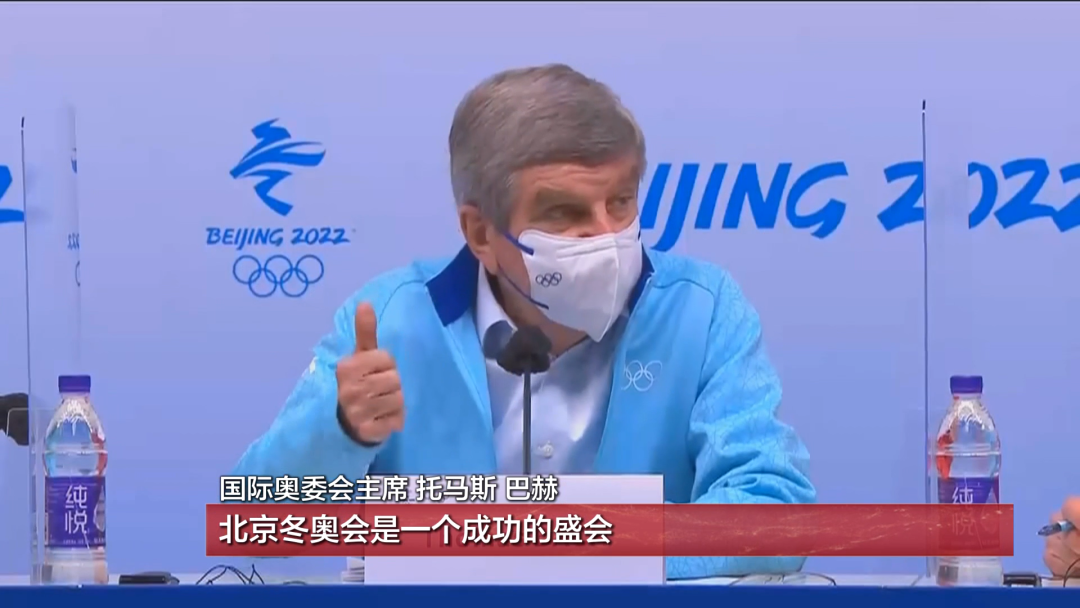
Thomas Bach, IOC President
Thomas Bach: The Beijing 2022 Winter Games is a great success. The athletes from across the world are more than happy with the venues, the Village, and the services offered.
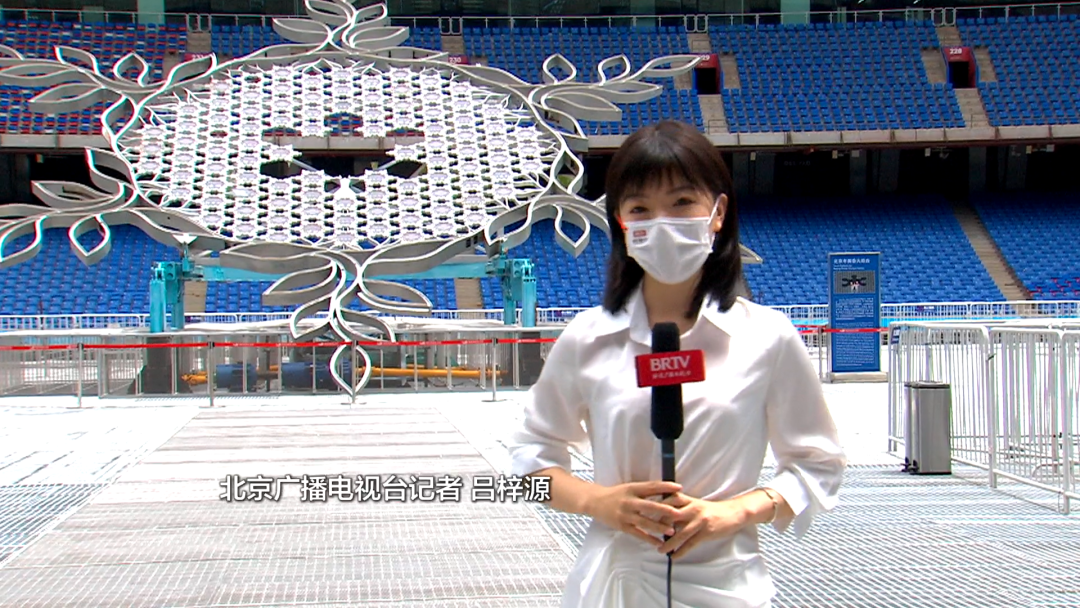
Lv Ziyuan, BRTV reporter
Lu Ziyuan: I am now at the National Stadium. On the evening of February 4 this year, delegations from 76 countries and regions witnessed the opening of the Beijing 2022 Winter Olympics here, which made Beijing a dual Olympic city. As the Olympic flag and the Olympic torch were raised above the sky, Beijing once again attracted the world's attention.
Over the past five years, Beijing has received more than 100 foreign heads of state and government, and successfully hosted more than 10 major diplomatic events, including the first and second Belt and Road Forums for International Cooperation, the Beijing Summit of the Forum on China-Africa Cooperation, and the Beijing World Horticultural Exhibition, and major international sports events such as the Beijing 2022 Winter Olympics and Paralympics.
The city has upgraded its three platforms for opening-up to national level, namely the China International Fair for Trade in Services, the Zhongguancun Forum, and the Financial Street Forum, and has successfully launched a number of international scientific and technological exchange activities, such as the Global Digital Economy Conference, the World 5G Convention, the World Intelligent Connected Vehicles Conference, and the World Robot Conference.
By tapping into the policy incentives of the "two zones" initiative, Beijing has made strenuous efforts to create a world-class business environment. New industrial clusters of international cooperation such as Beijing China-Germany Industrial Park and Beijing China-Japan Innovation & Cooperation Demonstration Zone have been launched in Beijing, and the city is home to 207 regional headquarters of multinationals and nearly 50,000 foreign-funded companies.
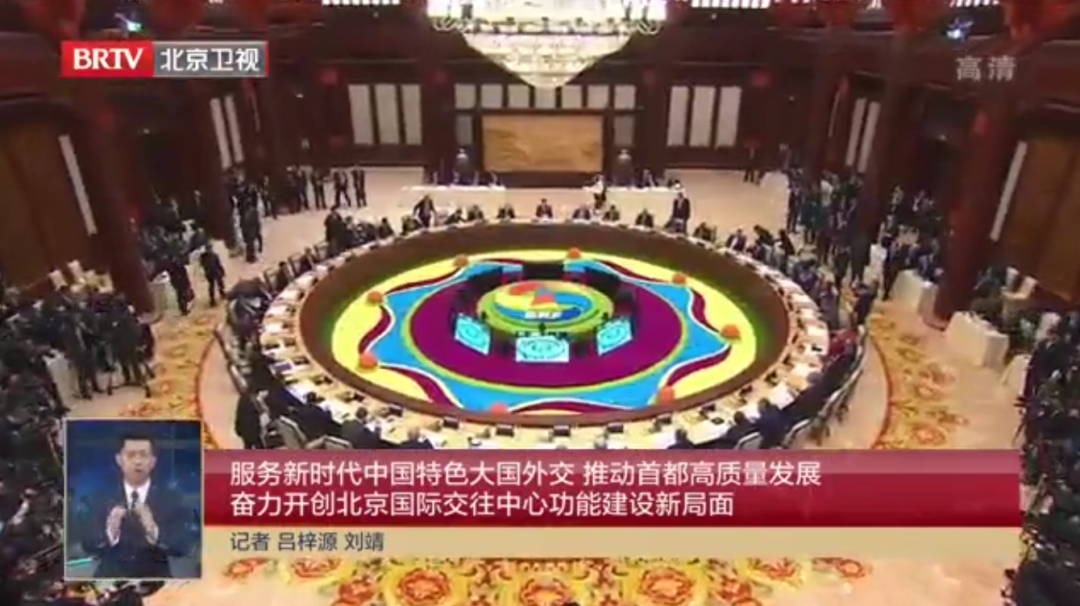
The Belt and Road Forum for International Cooperation
The Asian Financial Center, designated as office buildings for the headquarters of international organizations, was completed in 2019. By providing quality one-stop service and cultural exchange activities, it has attracted international organizations and institutions such as the Asian Infrastructure Investment Bank and the University of Hong Kong to settle in. So far, 106 international organizations have registered and set up offices in Beijing.
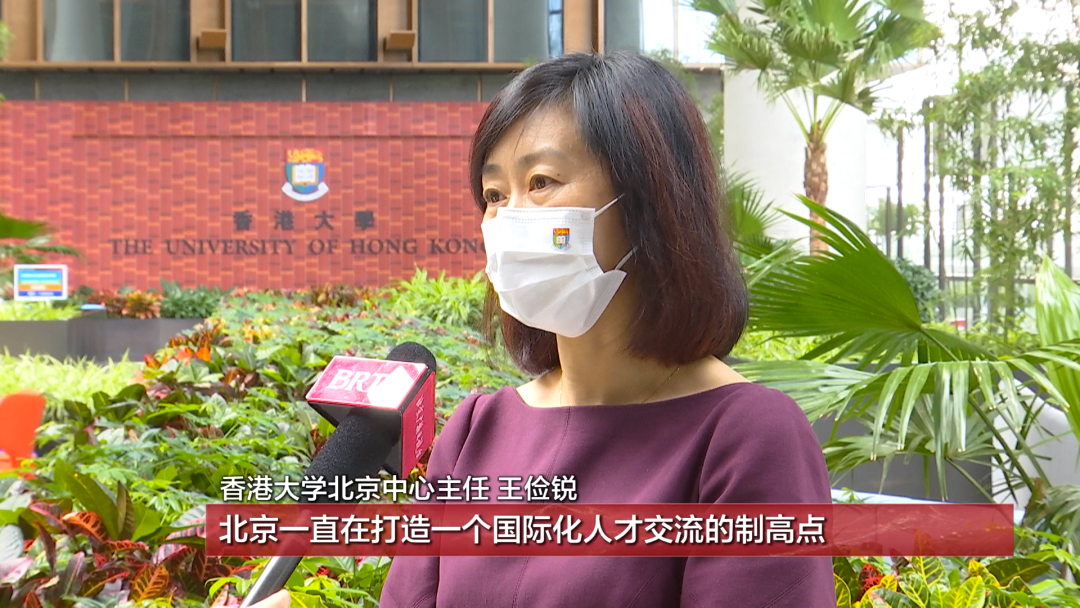
Wang Jianrui, Director of the Beijing Center of the University of Hong Kong (HKU)
Wang Jianrui: Beijing is striving to become a pacesetter in attracting international talent, which is in line with the HKU's vision for international talent development.
The Beijing China-Germany Industrial Park is China's first national-level industrial park focusing on economic and technological cooperation between China and Germany. By fully leveraging the "two zones" policies, it has gathered more than 73 German-funded enterprises with a total annual output exceeding 30 billion yuan.
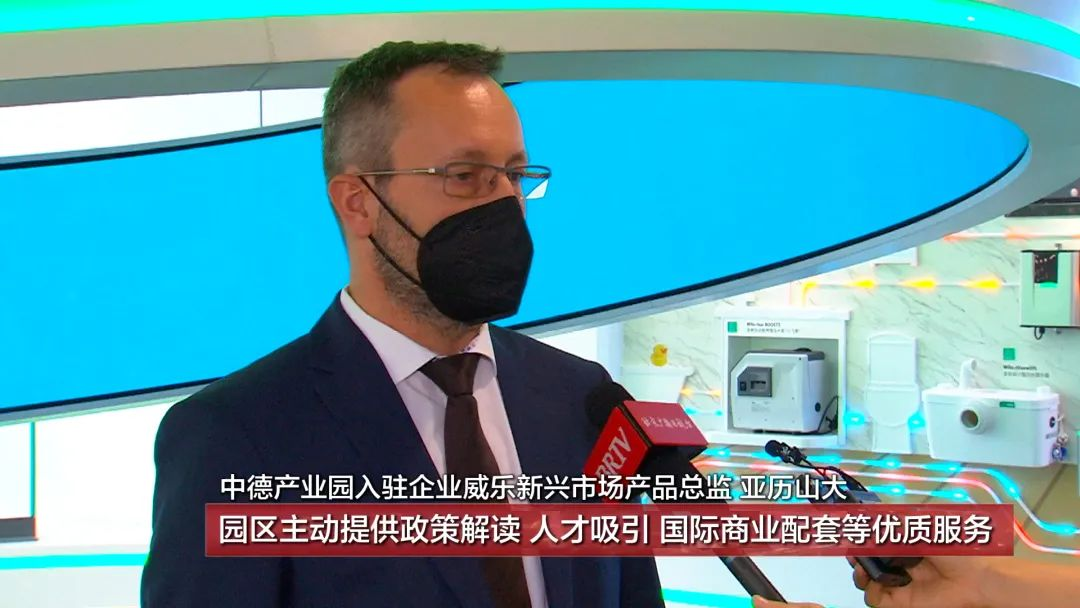
Alexandre Knorn, Vice President of Group Marketing of the Wilo Group
Alexandre Knorn: The Industrial Park provides quality services for policy implementation, talent attraction, and supporting facilities, which allow enterprises to focus on their businesses.
In addition, to attract international talent, Beijing has successfully hosted HICOOL Global Entrepreneur Summit and Entrepreneurship Competition for two times and created an ecological chain from identifying and launching start-up projects, to providing incubation and financing, and then to helping them grow into business. The Competition has attracted more than 8,000 overseas talent to start businesses in Beijing.

Olive, an exhibitor of the 2021 HICOOL Global Entrepreneur Summit
Olive: This year's Entrepreneur Summit is of high relevance, as there are a great number of multinationals, international projects, and investment institutions. Beijing is a perfect place for every overseas talent who wants to start a business.
Over the past five years, Beijing has sped up efforts to build international talent communities. A total of eight international talent communities in places including Chaoyang Wangjing, Zhongguancun Science City, and Beijing Future Science Park were developed with high standards. Demonstration blocks with international features such as Wangjing Walk and the International Talent Avenue from Wudaokou to Chengfu Road in Haidian District were also built.
Over the past five years, Beijing has improved major venues for international exchanges. The Yanqi Lake International Convention Center has been expanded and upgraded. The main building of the China National Convention Center Phase II has been completed. The post-Games use of Winter Olympic venues has been planned.
Over the past five years, Beijing has strived to build multi-level foreign exchange platforms. The total number of sister cities at both municipal and district levels has reached 245. Institutional exchange and cooperation platforms such as the Beijing-Seoul joint committee and the China-CEEC Capital Mayors Forum have been improved, and a series of signature events such as the Beijing Week, Beijing Day, and Beijing Night have been launched.
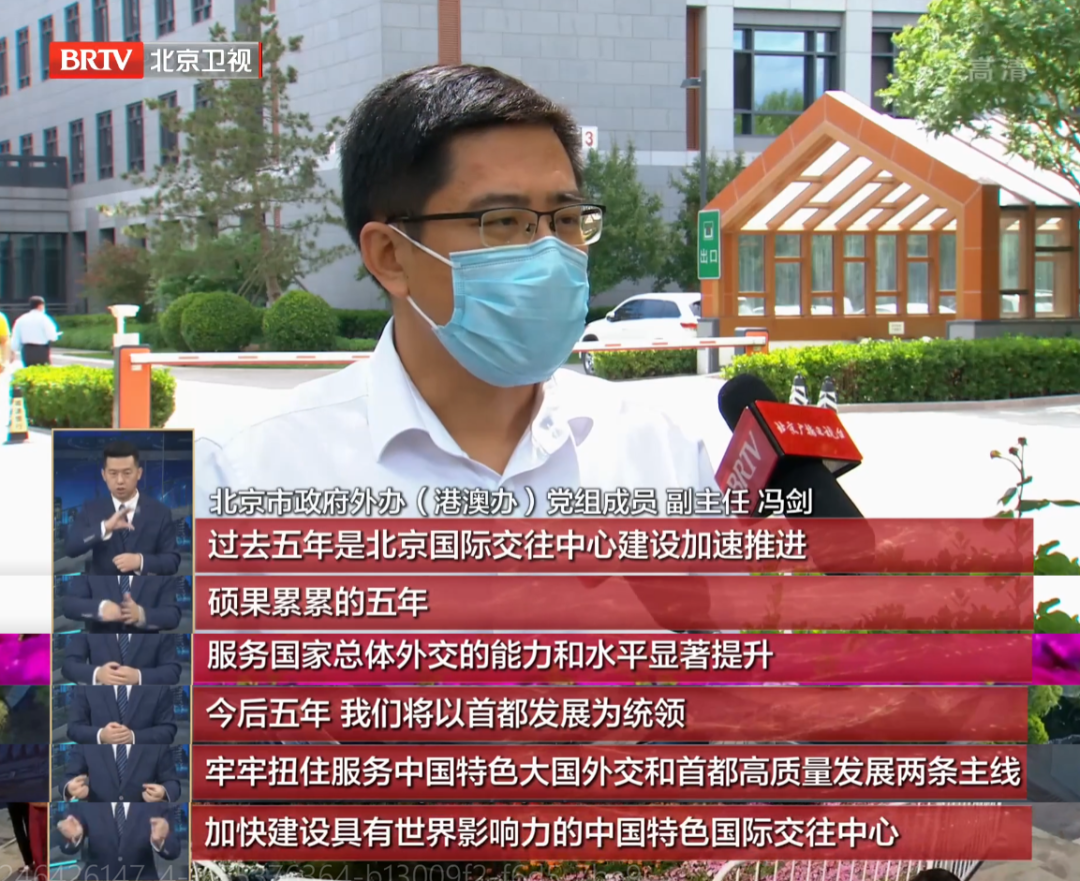
Feng Jian, Member of the Party Leadership Group and Deputy Director General of the Foreign Affairs Office (Hong Kong and Macao Affairs Office) of the People's Government of Beijing Municipality
Feng Jian: Fruitful results have been achieved in the past five years as Beijing sped up its efforts to strengthen its role as the center for international exchanges and significantly enhanced its ability to serve China's overall diplomacy. In the next five years, by pursuing Beijing's development as the nation's capital, we will focus on serving China's diplomatic approach as a major country and promoting Beijing's high-standard development, to accelerate the building of a national center for international exchanges with Chinese characteristics and global influence.


